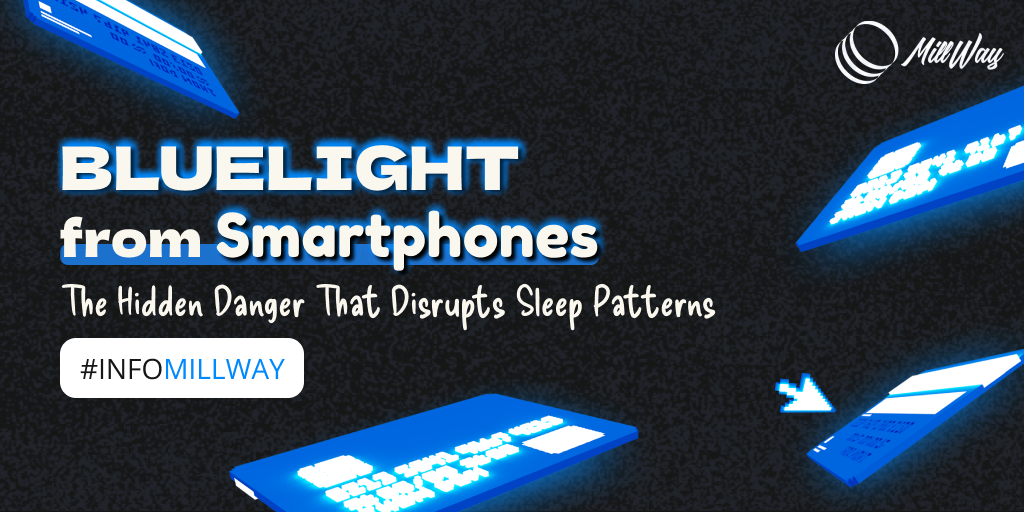
In the digital era, the habit of checking your phone before bed has become part of many people's daily routines. However, without realizing it, the blue light emitted by phones, laptops, and tablets can disrupt sleep quality and make it difficult for the body to rest optimally.
Blue light suppresses the production of melatonin, the hormone that regulates the sleep cycle, which can lead to insomnia, restless sleep, and fatigue the following day. What exactly is the impact of blue light on the body, and how can we avoid it?
Blue light is a type of light with a short wavelength and high energy that naturally comes from the sun. This light helps the body stay alert during the day. However, excessive exposure at night, especially from electronic devices, can interfere with the circadian rhythm or the body's biological clock.
Common artificial sources of blue light that we encounter are:
When we are exposed to blue light at night, the brain thinks it is still daytime, thus reducing melatonin production and making it difficult for the body to sleep.
Not all music is suitable for improving focus. Here are some effects of blue light on sleep:
Melatonin is the hormone that helps the body feel sleepy. Exposure to blue light before bed inhibits its production, so the body does not receive the signal to rest.
The circadian rhythm is the body's biological clock that regulates when we should be awake and when we should sleep. Exposure to blue light at night confuses the brain and delays natural sleep time, causing difficulty falling asleep and morning fatigue.
People who frequently use their phones before bed tend to experience sleep disturbances like insomnia. The constant exposure to bright light keeps the brain active and makes it difficult to relax.
Even if you manage to sleep, the quality of sleep is still affected. People exposed to blue light before bed often experience restless sleep, frequent wake-ups during the night, and less time spent in deep sleep.
Chronic lack of sleep due to blue light exposure can have negative effects on health, such as:
Avoid using your phone at least 1 hour before bed. Instead, engage in other activities like reading a physical book, listening to relaxing music, or meditating.
Most phones and laptops have a Night Shift or Blue Light Filter feature that reduces blue light emission. Enable this mode, especially at night, to reduce its negative impact.
Lowering the screen brightness can help reduce the intensity of blue light entering the eyes.
If you must use electronic devices at night, consider wearing glasses with blue light filters to protect your eyes from its negative effects.
Replace the habit of using your phone before bed with healthier activities, such as:
